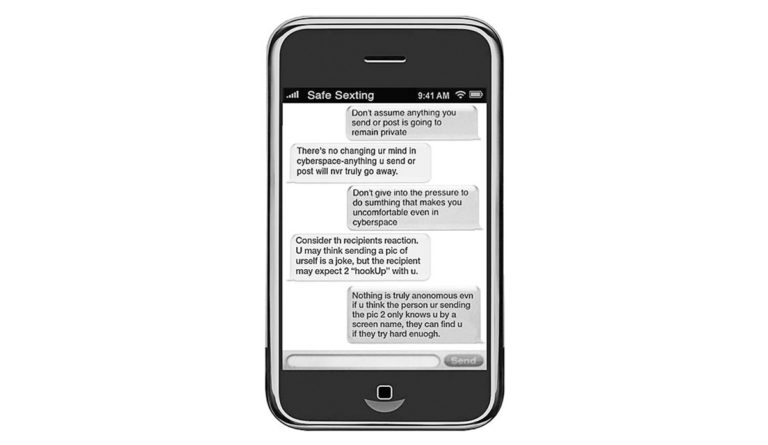Teen Sexting
Teenagers are using technology to explore their sexuality. However, older laws created specifically to address child pornography can be used to prosecute teen sexting.

Read Time: 4 minutes
Published:
Almost every teenager in the United States has access to a smart phone. Close to half report being online almost all the time. This year, more than two-thirds of 13-17 year olds reported that online communication with their friends was preferable to in-person communication. As intimate relationships expand through technologic platforms, teenagers are finding new mediums for exploring their sexuality. So should older laws, created specifically to address child pornography, be used to prosecute modern-day teenagers who engage in sexting?
As teenagers develop online romantic relationships, the inclination to share explicit pictures electronically (i.e., “sexting”) has become common. A 2012 study in Texas found that, across seven public high schools, 28% of students had sent naked pictures of themselves. Thirty-one percent had requested a sext from someone, and 57% reported having been asked to send a sext. US teens who pay their own cell phone bill are more likely to engage in sexting.
Although sexting is legal between consenting adults, minors who exchange explicit images or videos are at risk of legal prosecution for possessing child pornography. Child pornography laws are designed to protect minors from becoming victims of sexual exploitation. But youth who share nude selfies are not victims of sexual exploitation. A 2018 article by Brian Holoyda and colleagues reviewed the repercussions teens face when prosecuted for sexting, and how some states are reviewing sexting policies.
Although sexting is legal between consenting adults, minors who exchange explicit images or videos are at risk of legal prosecution for possessing child pornography.
Prosecuted minors can face prison sentences and may have to register as sex offenders. Minors who become registered as sex offenders can experience lifetime psychological and traumatic stress resulting from the substantial employment, housing, and educational barriers that they face.
Child pornography laws were created to prevent children from exploitation and abuse. The laws are fundamental for cases in which exchanged material is shared without consent, goes viral, or is used for sexual exploitation. But is it fair to apply same laws against teens who are caught harmlessly exploring their sexuality? Holoyda and his team ask prosecutors to reconsider how children are prosecuted when caught.
Twenty states have sought to reduce the harshness of their sentencing by introducing laws that include terminology specific to “teen sexting.”
Some states have passed legislation to provide alternative forms of justice for minors prosecuted for sexting. Twenty states have sought to reduce the harshness of their sentencing by introducing laws that include terminology specific to “teen sexting.” Florida’s sexual cyber-harassment law penalizes based on the severity of the crime, ranging from community service for non-criminal violations to a felony charge, prison sentence, and hefty fine for violations found to be criminal. Distributing an image to a single person in Arizona is considered a petty offense punishable by fine, and a misdemeanor if distributed to more than one person. Several states, such as California and Colorado, have laws to address revenge porn, images of others shared without consent. Massachusetts, Maine, and New Hampshire have no sexting laws in place.
Few sexting cases among minors result in felony charges. In most cases, police officers are cognizant of the repercussions associated with prosecuting teens under child pornography laws, and usually drop benign cases. A 2011 study found that arrests of minors for child pornography were uncommon unless adults or “aggravating elements” were involved (such as non-consensual or malicious use). The study found that very few sexual sexting instances were reported to law enforcement and the majority of youth were not arrested for their actions. Only 47 out of 214 teenagers arrested for having shared images consensually, not one was prosecuted under sex offender laws.
Feature image: The Accent, sexting, used under CC BY-SA 2.0



